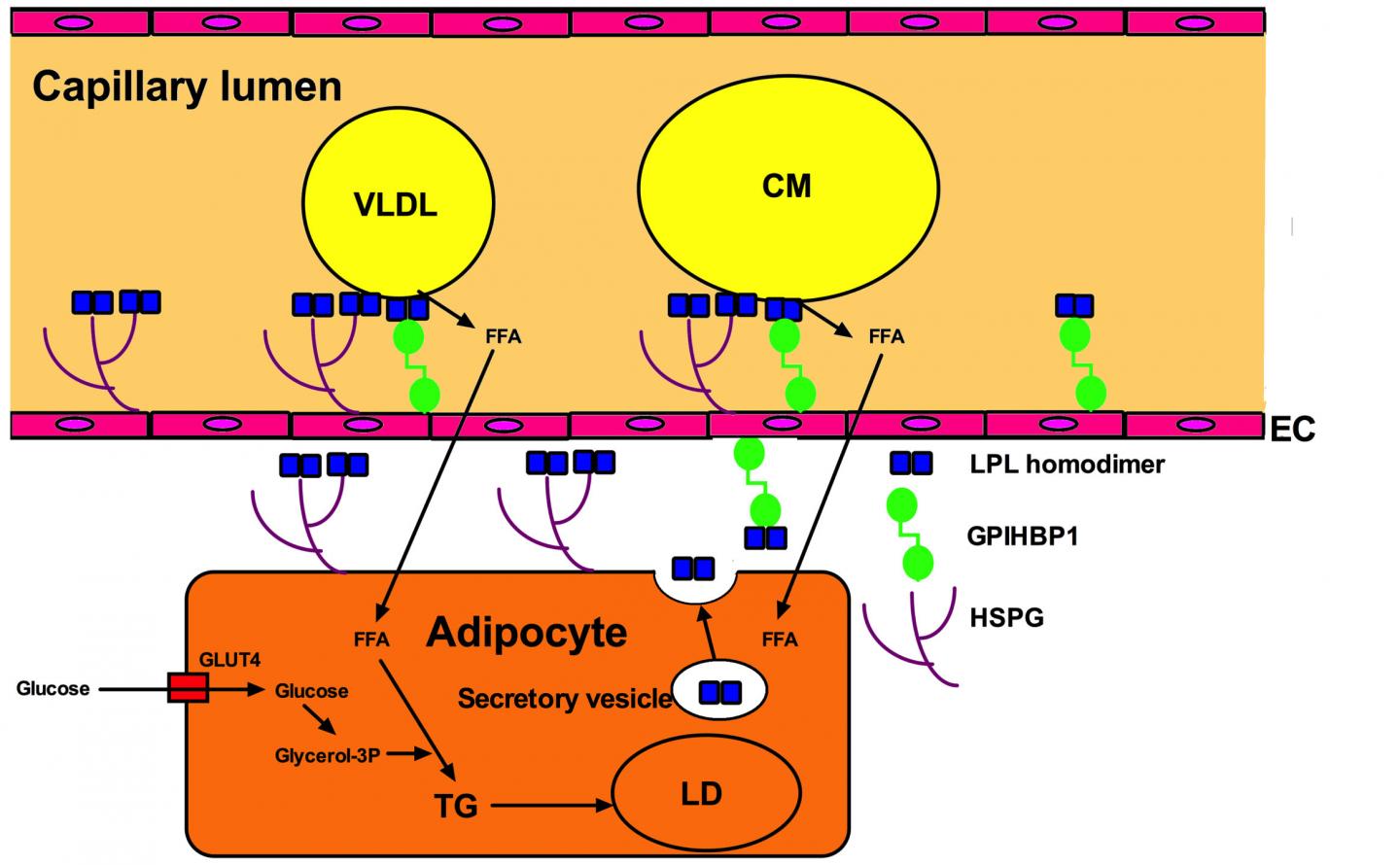They assure that the methylation of genes related to lipid metabolism and inflammation is altered in obese patients

Credit: University of Malaga
DNA methylation is a mechanism that regulates whether genes are “on” or “off”, and is influenced by hereditary and environmental factors, as well as lifestyle and nutritional habits.
This research evidences that methylation levels in the gene involved in lipid metabolism -Lipoprotein lipase (LPL)- are higher in obese people with a metabolic disease in contrast to healthy people. “Since this gene is essential to decide whether the fat ingested is stored or consumed by the tissues, a dysfunction of this gene would cause high levels of triglycerides in blood”, explains the main author, Daniel Castellano.
In this regard, experts alert that dysfunctional lipid metabolism in obesity is associated with a higher systemic inflammation, diabetes, cardiovascular disease or even cancer.
Likewise, this study also describes a lower DNA methylation in a gene related to inflammatory processes, such as the tumor necrosis factor (TNF), which may cause a higher functioning of this gene, which, in turn, may affect the pro-inflammatory condition observed in obese people with a metabolic disease.
Consequently, the main researchers of the study, Fernando Cardona and María Isabel Queipo, both members of Group A02 of the Biomedical Research Institute of Malaga (IBIMA), coordinated by Francisco José Tinahones, conclude that the methylation levels of genes related to lipid metabolism and inflammation are altered in obese patients with a metabolic disease, which partially explains the development of this disease.
The importance of epigenetic regulation
Thus, they point out the importance of epigenetic regulation in the origin of metabolic diseases and affirm that the study of epigenetic mechanisms is essential for developing new therapeutic strategies to face these pathologies, as well as for determining lifestyle habits that may prevent these alterations in DNA methylation.
###
The results of this study have been published in the scientific journal Journal of Clinical Medicine.
BIBLIOGRAPHIC REFERENCE:
Castellano-Castillo D, Moreno-Indias I, Sanchez-Alcoholado L, Ramos-Molina B, Alcaide-Torres J, Morcillo S, Ocaña-Wilhelmi L, Tinahones F, Queipo-Ortuño MI, Cardona F. Altered Adipose Tissue DNA Methylation Status in Metabolic Syndrome: Relationships Between Global DNA Methylation and Specific Methylation at Adipogenic, Lipid Metabolism and Inflammatory Candidate Genes and Metabolic Variables. J Clin Med. 2019 Jan 13;8(1). pii: E87.
doi: 10.3390/jcm8010087
Media Contact
Fernando Cardona
[email protected]
Related Journal Article
http://dx.




